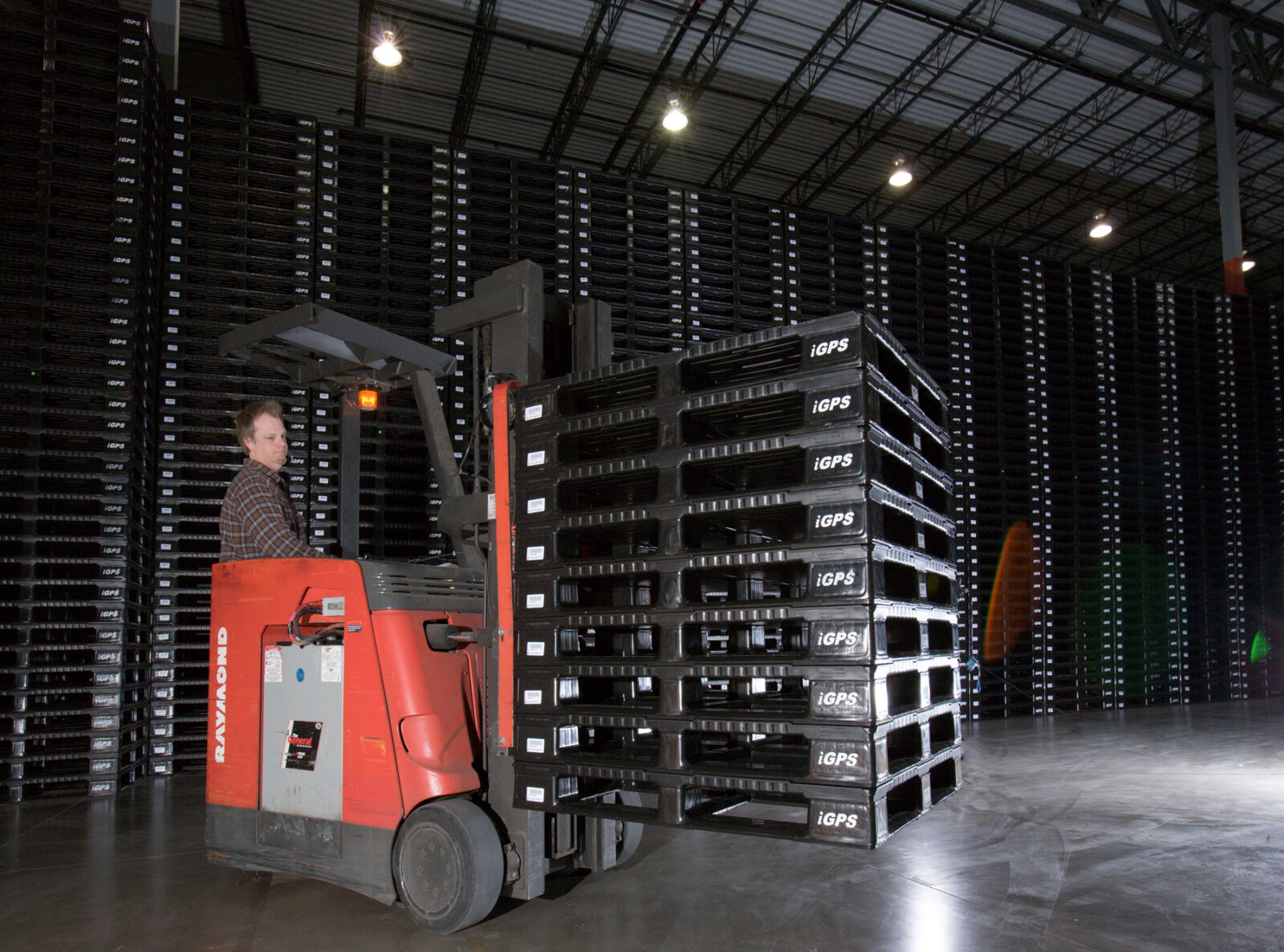Wood pallet use is sometimes spoken of as though it is a massive contributor to deforestation, but that’s not necessarily accurate. Wood pallets do require the harvest of natural resources, but many wood pallet manufacturers are seeking to make their practices more sustainable. Companies still using wood pallets in their supply chain and looking to reduce the environmental impact of wooden pallets should seek out pallet manufacturers that adhere to ecologically responsible practices, like planting trees and using softwood rather than hardwood.
An even better option is to avoid wood entirely by switching to plastic pallets. They require little use of natural resources and are easily recyclable. Pairing plastic pallets with a pooling model in which pallets are rented rather than owned is possibly the best way to make your supply chain practices sustainable.

Pooled Plastic Pallets as a Cleaner, Greener Alternative
While wood pallets are “downcycled” at the end of their lifespans, high-quality plastic pallets never leave the supply chain. Instead, when they’re irreparably damaged or reach the end of their useful lives, they’re simply molded into “new” pallets. This is a classic example of a truly circular business model.
Plastic pallet pooling is a business model built on ensuring resources are used to their maximum potential. Manufacturers, warehouses, and retailers rent bulk plastic pallets from a pallet pooling provider as needed. The pooling company manages pallet supply, retrieval, and maintenance, making pallet logistics simple. The pooling model also serves to improve fuel efficiency and minimize carbon emissions, as the pooling company is able to coordinate pallet transportation between depots and customers for optimal efficiency. This efficiency is further enhanced by the fact that plastic pallets are typically lighter than wood, which also contributes to fuel savings.
iGPS Logistics, a plastic pallet pooling company committed to sustainable shipping, commissioned Environmental Resources Management — a leading global sustainability consultancy — to conduct an independent life cycle analysis to determine the environmental impact of recyclable plastic pallets as well as wood pallets. When comparing the iGPS plastic pallet to the typical multi-use wood pallet, plastic pallets have 38% less impact on ozone-layer depletion; 28% less impact on global warming; 36% less impact on smog production; 22% less impact on acidification; 40% less impact on ecotoxicity; and 32% percent less impact on eutrophication (the harmful overgrowth of algae in waterways due to excess runoff).
Put simply, wood can only be reused a limited number of times before it loses its integrity, while recyclable plastic pallets offer the possibility of a truly circular pallet supply model. Supply chain managers looking to lessen the effects of their operations on the environment should consider plastic pallet pooling as a sustainable, closed-loop option.
The National Forest Foundation is proud to partner with iGPS Logistics to plant more than 100,000 trees across National Forests, contributing to a greener, more sustainable future.
Cover photo by Alberto Bigoni.

